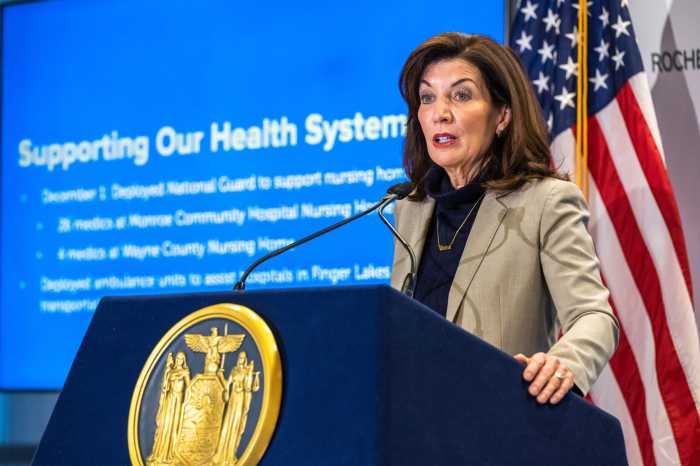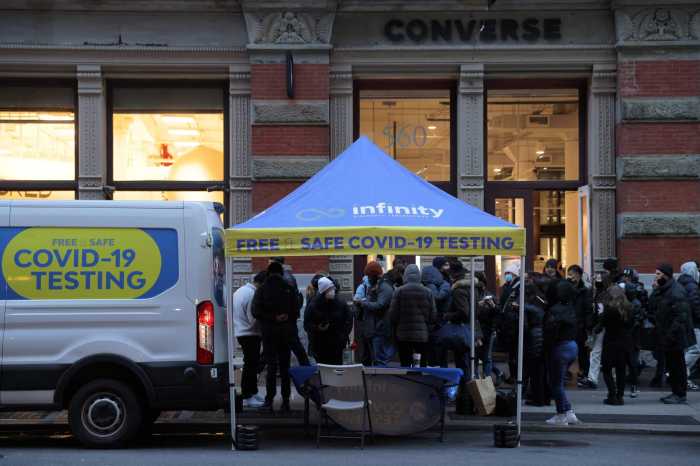As Broadway producers contemplate the steps they can take in order to keep their shows solvent in spite of the challenges and uncertainties posed by the Omicron variant and the sparsely-attended winter months, tensions between producers and Broadway’s unionized performers, backstage technicians, and front-of-stage employees are spilling into view.
It began last month when the highly-contagious Omicron variant took Broadway by surprise and created havoc during the normally lucrative holiday weeks. As performers and others tested positive and had to be quarantined, shows were forced to cancel performances due to having insufficient coverage.
In a now infamous interview with the Hollywood Reporter, Charlotte St. Martin, president of the Broadway League (the trade group which represents Broadway producers and theater owners), appeared to place the blame for performance cancellations on some understudies being too inexperienced, which prompted a strong rebuke on social media.
As performance cancellations continued, some shows closed on short notice or announced they would close imminently, including “Jagged Little Pill,” “Thoughts of a Colored Man,” “Ain’t Too Proud,” and “Flying Over Sunset.” Meanwhile, the new musical “Paradise Square” and many Off-Broadway shows have delayed their start dates. But rather than simply close or postpone a show, some producers are now putting their shows on “hiatus.”
In early January, the producers of “Mrs. Doubtfire” announced that the show would go on a nine-week hiatus from Jan. 10 to March 14 in order to limit expected losses in Jan. and Feb. and prevent the show from having to permanently close. During the hiatus, the show’s employees are not getting paid, and there is no guarantee that the show will in fact return or that they will be rehired.
Last week, two more shows, “To Kill a Mockingbird” and “Girl from the North Country,” announced that they will also go on hiatus. “To Kill a Mockingbird” plans to reopen at the smaller Belasco Theatre (which was home to “Girl from the North Country”) in June, and “Girl from the North Country” is hoping to reopen at another theater in the spring.
In an interview with CNBC, Mary McColl, executive director of Actors’ Equity Association, expressed concern that the hiatus mechanism is being viewed as “a layoff that’s necessary in the winter. I don’t think it’s just exclusive in their mind to the COVID situation we’re in…”
Historically, before the introduction of air conditioning, Broadway shows would shut down over the summer. Based on recent events, we may be looking at a future where many Broadway shows shut down (or at least reduce their weekly performance schedules) during the winter in order to cut losses.
This moment could either be a blip or a breaking point for Broadway. It has long been debated whether Broadway labor contracts are antiquated and need to be changed due to rising costs. Some wondered whether Broadway would need to reconsider its entire business model in order to return from the shutdown, but taking that position would have been hazardous. The Metropolitan Opera nearly derailed its new season by locking out stagehands during contract negotiations.
It is unclear how much longer the current situation will last. Soon enough, the weather will improve, and so should audience attendance.
And last week, no performances on Broadway had to be canceled due to insufficient coverage. Stay tuned.




































